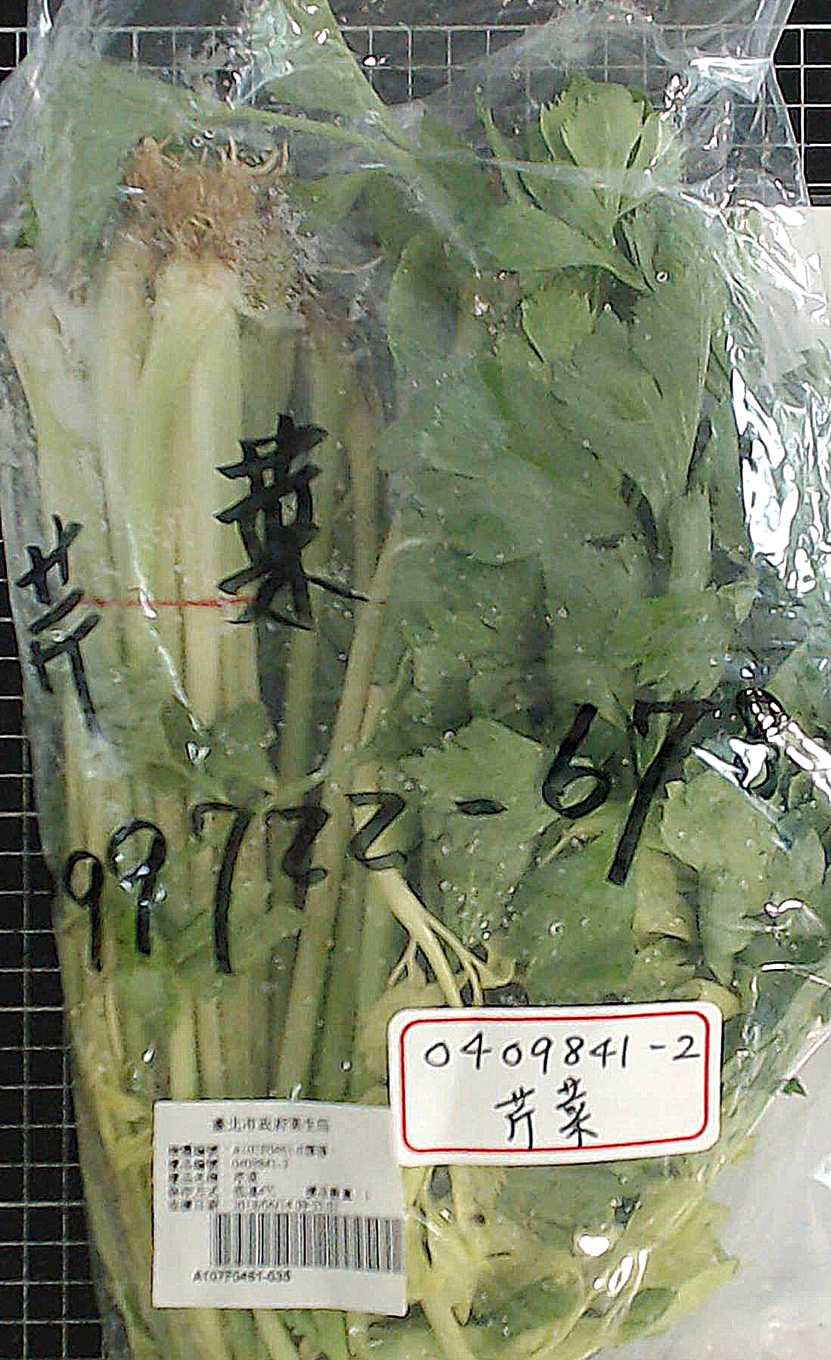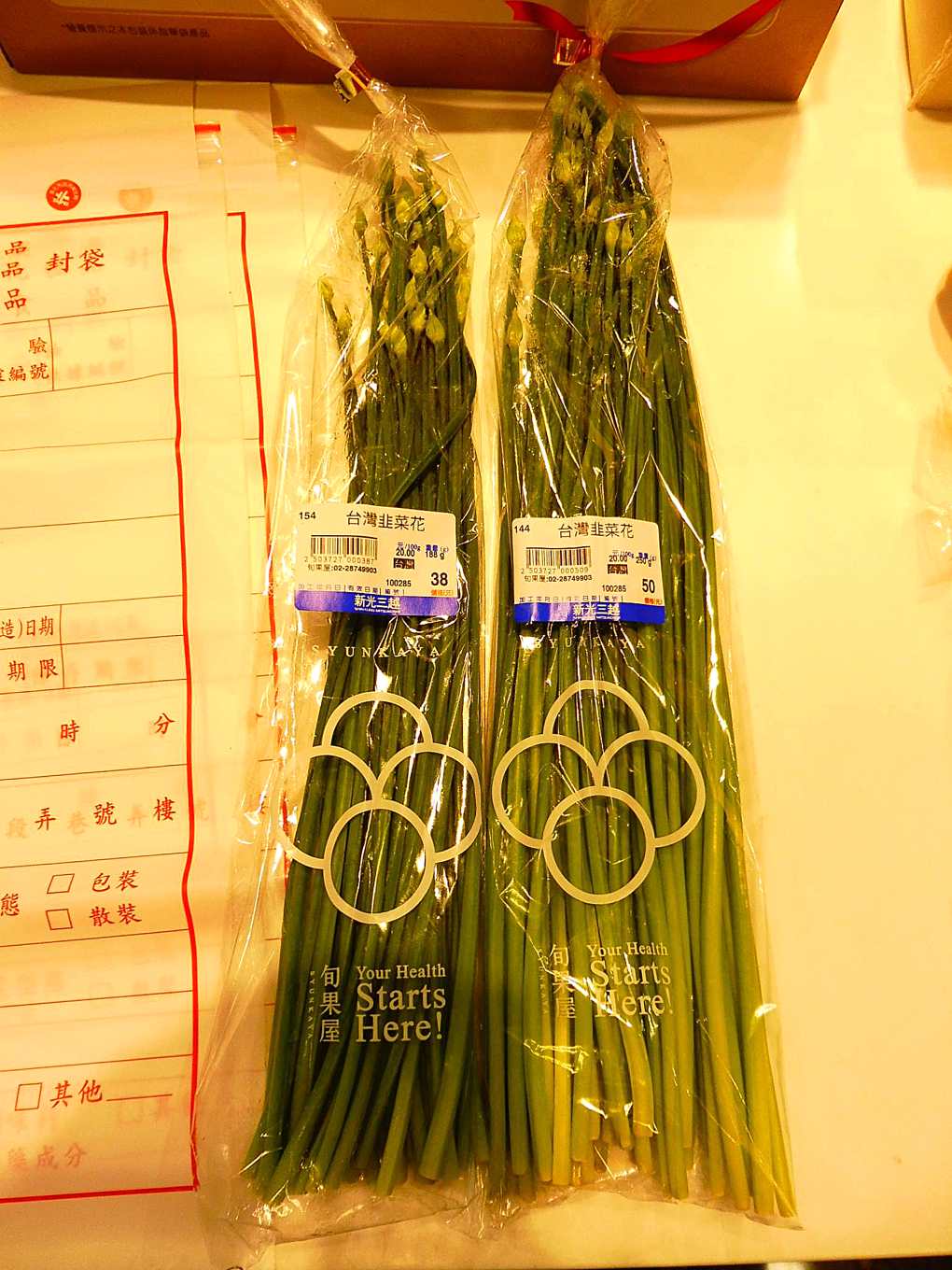According to the sampling test of the North Municipal Health Bureau, 9% of the pesticide residues in fruits and vegetables were unqualified, and the celery and nine-storey towers seriously exceeded the standard.
Share165 + 1 Tweet EmailShares 165
The Taipei Municipal Health Bureau tested pesticide residues in fruits and vegetables, and the violation rate was nearly 10%. The items included celery, nine-story tower, passion fruit, okra, chili, leek flower and red pepper, among which celery exceeded the standard most seriously, with fungicides and herbicides exceeding the standard by nearly 60 and 40 times respectively. Nine-story tower products have also been found to be not used in vegetables.


Leek flowers with excessive pesticides (photo courtesy of Taipei Health Bureau)
High temperature and humidity, high probability of pesticide use
This time, the number of violations of fungicides and pesticides was the highest. An employee surnamed Lin of Caohu Cooperative Farm in Yunlin County, which supplied Beinong first Fruit and vegetable Wholesale Market, responded that there were so many celery pests that it was difficult not to spray, but denied that herbicides were used on the farm. "how can it be sprayed?" He died after spraying celery. " It is not clear that the herbicide has exceeded the standard this time.
In addition, Lu Chang, director of Fuxing Cooperative Farm in Yunlin County, which also involves excessive pesticide residues, said that after a preliminary investigation, a farmer planting a nine-story tower misused pesticides, and the promotion of pesticide use among cooperative farmers will be strengthened in the future. However, he also explained that the climate is hot and humid this year, and the nine-story tower belongs to crops harvested many times. The lower leaves are easy to produce bacteria and plant diseases in a high-temperature environment, so they all need to be sprayed with pesticides.
Agricultural reform farm suggestion: non-chemical pesticide materials can be used to replace general pesticides
Wang Shixian, director of the Tainan Agricultural Reform Farm, points out that insect pests are serious in the dry season, but there are many disease problems in the rainy season, so it is difficult to persuade farmers not to use pesticides at all, but he stresses that drug management techniques need to be strengthened, especially when habitual farmers can choose more pesticides. Less harmful chemicals should be used.
Chen Huan, an associate researcher at Tainan Agricultural Reform Farm, further explained that the planting density of the nine-story tower is generally high, so the lower leaves are not easily ventilated and often have disease and insect problems, while the base of the stem of celery (at the junction of the stem and soil) is also prone to diseases and insect pests. coupled with the fact that celery is not heat-resistant, the medicine is more intense in summer.
However, Chen suggested that general pesticides can be replaced with non-chemical pesticide control materials, such as emulsified oil and lime-sulfur mixture, phosphorous acid can also prevent bacteria, and neem oil can inhibit insect pests, although the effect is not as strong as chemical pesticides, but there is less problem of pesticide residues.
In addition, if you choose to use pesticides, Chen Xiankuan also reminds farmers to establish a correct concept of drug use. For example, pesticides with longer efficacy should be used as early as possible, and pesticides with shorter efficacy should be used when they are close to harvest. He also pointed out that there is no single method for pest control, and multiple control should be carried out according to crop characteristics, seasons and environment.
Share165 + 1 Tweet EmailShares 165
- Prev

Taipei Industrial Development Award subsidies and financing loans have both exceeded 1 billion.
The total amount of industrial development incentives, subsidies and financing loans in Taipei City has broken through the 1 billion yuan mark since Taipei Mayor Ko Wenzhe took office. Mayor Ke Wenzhe specially attended a press conference of the Industry Bureau on the morning of the 18th. He especially stressed that starting a business.
- Next

In the name of the son! New Taipei Organic fresh Force-Mili Farm
Hong Fuquan runs an organic farm in Linkou District and named the farm Mili Farm after his son. After passing the organic verification this year, Hong Fuquan has become a new force in organic agriculture.
Related
- A course of planting techniques and methods on how to grow carrots
- How to plant the latest tulips?
- Is it better to pick tea in the morning or in the afternoon? When is the best time for tea to be picked? what is the third or fifth tea?
- Launch Yuanxiao Happy combination Haocha + Tea Yuan healthy Taste
- Penghu Tourism "Fireworks 20 Parade with You"
- 2022 West Lake Happiness holds "Digital Revitalization Voucher" and draws iphone13 and laptop.
- Banqiao Fuzhou social houses are designed to change start-up combined with police elimination to create a safe and livable environment
- The convenient measure of "mechanical weeding" in Xinbei has been abused and the Agriculture Bureau has imposed heavy penalties on the illegal land consolidation.
- Changgeng University Joins Hands with Four Memory Factories to Rescue Memory Talent Shortage
- The list of Taiwan's top 100 MVP managers is listed by the Director-General of the Farmers' Association of Sanxia District.

